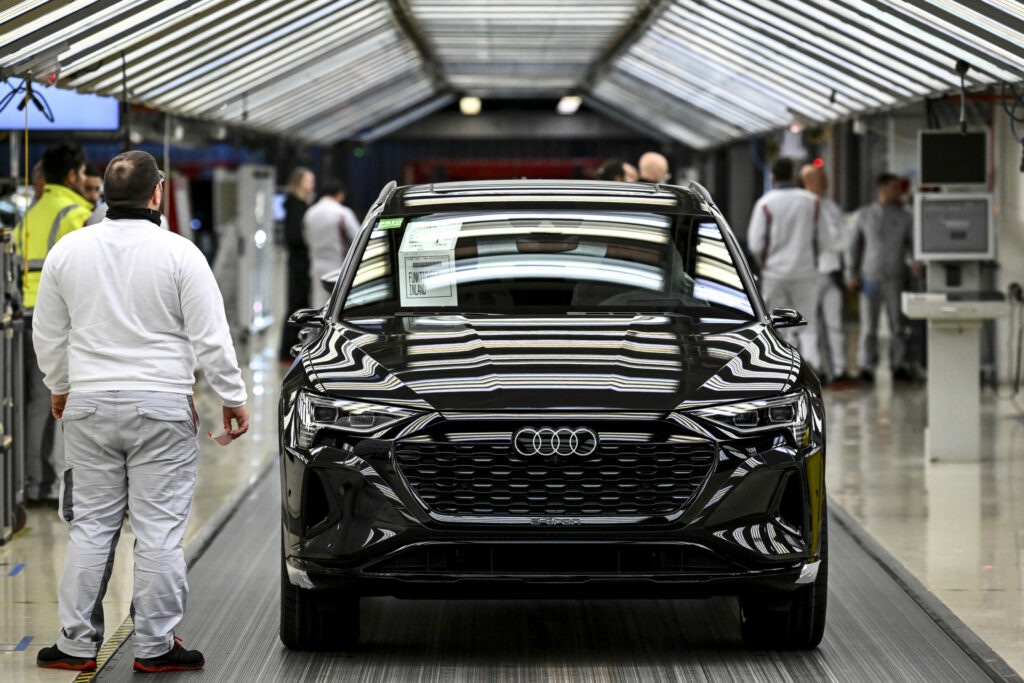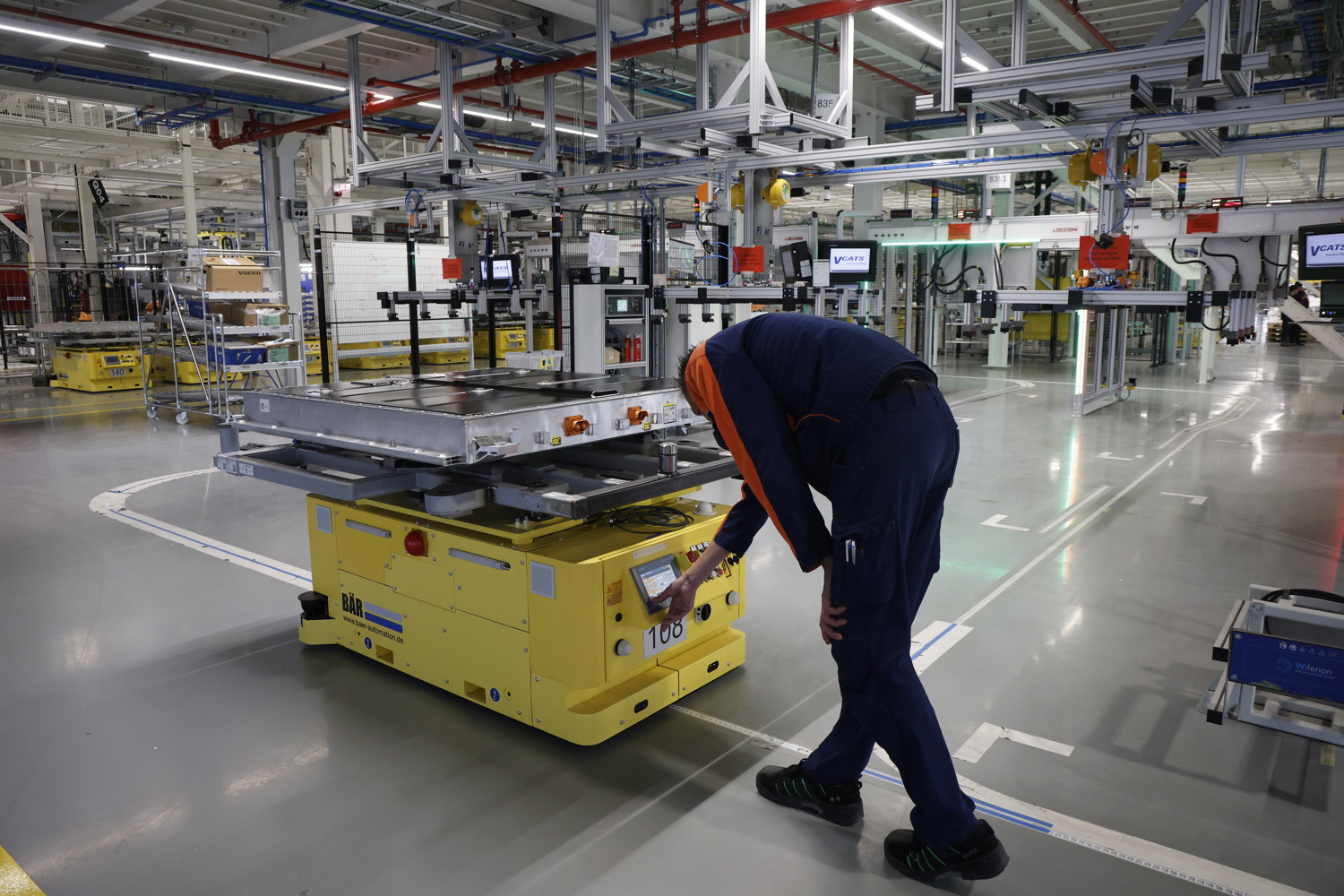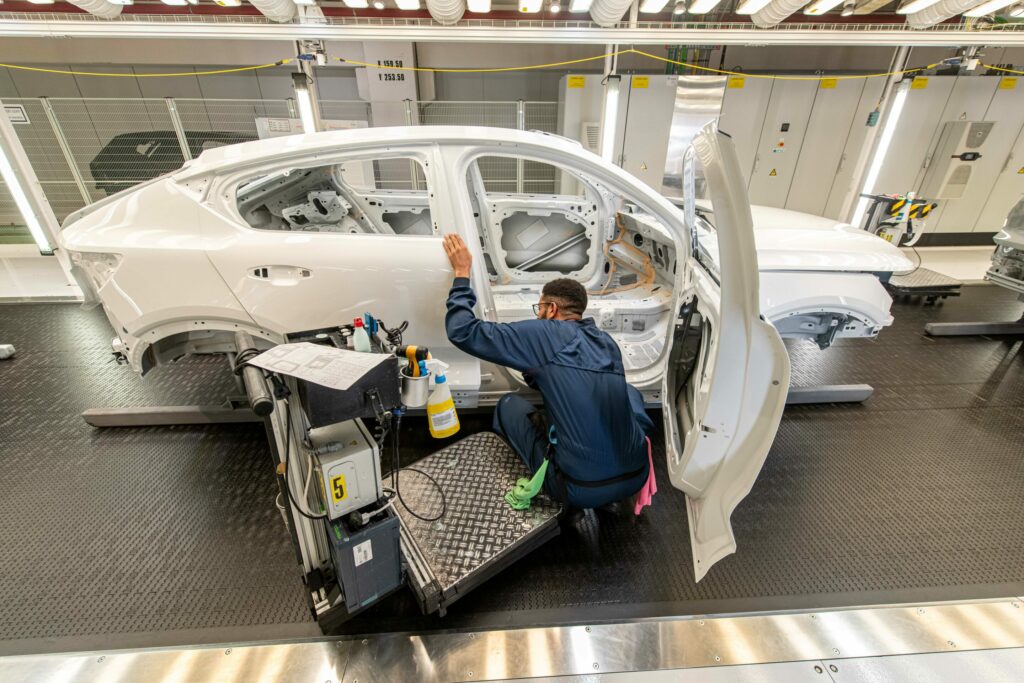US President Donald Trump announced on Thursday that from 3 April new import tariffs of 25% on cars and their parts coming into the US from across the world.
The move comes as part of Trump's push to promote American-made goods and force global producers to move their production to America, in the hope that the US can revive its once-dominant automotive sector. While Trump claims the plans will promote “tremendous growth”, create jobs and boost investments, the global economy has reacted negatively.
One of Germany’s largest logistics groups active in the automotive transportation sector has already announced that it expects a 15% reduction in traffic at its busy shipping terminal in Bremerhaven as a result of the decision. Similarly, French car part supplier Valeo has announced plans to hike its prices as a result of the move, which strikes a major blow to free market principles.
EU automotive chiefs have warned that the consequences on Europe’s already struggling vehicle manufacturing industry could be “disastrous”. But what will this mean in concrete terms for major automotive manufacturers?
In a comment to The Brussels Times, Eric Dor, director of economic studies at the IESEG School of Management, said that Trump’s ‘America-first’ policy would lead to economic downturn both in Europe and the United States.
Turbulent times for European car manufacturers
“Car exports from the EU to the United States will fall sharply,” the senior economist forecasts. “If European exporters don't reduce sales prices and lower their margins, purchase prices will go up 25% for importers in the United States.”
The obvious consequence of this will be more expensive prices in the showrooms of major global vehicle brands in the US, reduced demand for European cars, and a subsequent drop in European production.
It's an assessment shared by the global financial markets, with Europe’s STOXX Europe’s auto index retracting 2.3% at 14:00. Shares of Jeep parent company Stellantis lost 4.7% of their value, while major German brands Mercedes-Benz and BMW slid by 4.7% and 2.9%, respectively.
Major German car manufacturers lost a total of €5.5 billion in combined market value on Thursday following the White House announcement, highlighting global economic concern for the future of the European automobile export market.
“The EU’s exposure is quite significant, with car exports of €38.9 billion to the United States in 2024. In 2024 this amounted to €25.2 billion for Germany, €3.4 billion for Italy, and €3.1 billion for Slovakia,” Dor noted.

Production of the Audi Q8 e-tron and Q8 Sportback, which has been moved from Brussels to Mexico. Credit: Belga/ Dirk Waem
A downwards spiral
It is likely the tariffs will encourage European automotive producers to relocate production or assembly to the United States, further accelerating a downwards trend in vehicle production in Europe.
Europe has already struggled to position itself in the global automotive market, faced with the Commission’s ambitious plans to ditch the sale of new combustion engine vehicles by 2035, a rapidly expanding Chinese electric vehicle (EV) market, and rapid deindustrialisation of certain EU Member States.
European Commission President Ursula Von der Leyen stated on Wednesday that she “deeply regrets” Trump's decision, noting that in both the US and EU the automotive industry was “a driver of innovation, competitiveness, and high-quality jobs.”
As Europe’s leading producer of vehicles, Germany is set to be disproportionately affected by the growing trade war emerging between the United States and its biggest trade partners.
“The decline in activity in the automotive sector, with the associated job and income losses, will reduce demand for other sectors. The recessionary effect will be widespread. Germany’s demand for other European Union countries will decline. In turn, the other EU countries will also be affected because their various productive sectors will sell fewer goods and services to Germany,” Dor told The Brussels Times.

The Volvo Cars plant in Ghent. Credit: Belga/ Nicolas Maeterlinck
Dor suggested that a “widespread recessionary effect” could set in if European producers cannot offset their costs. This seems unlikely as it would require European manufacturers cut the cost of their vehicles to offset the higher US sales prices.
Fully compensating for the tariffs at the point of production is impossible the economist says; even minor efforts to absorb the tariffs would incur significant costs for European producers.
“The initial margin of European producers is generally too small to be able to reduce their selling price significantly. For most models the selling price of European cars will increase in the United States. Their demand will therefore fall.”
Back in Brussels, automotive woes
Though no longer a major automotive producer, Belgium won't escape the punitive tariffs. In 2024, the Port of Antwerp-Bruges handled 3.1 million new cars, making it the largest roll-on roll-off (RORO) port in the world. Any reduction in European automotive production will significantly reduce the incomes generated by Belgium’s major logistics sector and its associated industries.
Dor notes that car exports from Belgium to the United States were worth €1.3 billion in 2024. This will likely decline, especially as the Audi Brussels plant closed definitively in February. Only Volvo operates a major car plant in Belgium, where it produces the popular XC40. The plant soon hopes to start on the brand’s new EV range.
Belgium also operates a significant trade in other vehicles, shipping last year goods such as trucks (€69.6 million), trailers (€39.8 million), and motorcycles (€9 million), according to Eurostat figures.
The tariffs don’t stop at completed vehicles. Under the White House plans, tariffs will also be extended to car parts, with the penalties set to apply from 3 May.

Cars waiting for transport from Antwerp port. Credit: Belga
The production of spare parts in Belgium is represented by firms such as VCST (Sint-Truiden), EFTEC (Genk), Lear Corporation (Anderlecht), OPmobilitiy (Sint-Pieters-Leeuw), and others. This trade is particularly valuable for the Belgian economy, netting approximately €180 million for Belgian firms in 2024.
An escalation of the emerging trade war between the EU and the US will have negative effects on the Belgian economy. The US has already threatened to slap tariffs on valuable Belgian exports, such as 200% on alcohol. Trade in beer alone between Belgium and the U.S. amounted to nearly €44.5 billion in 2023.
In a comment to American media CNBC, Belgian National Bank Governor Pierre Wunsch stated that Trump's sanction policy would be "bad for growth" across Europe and likely inflationary. Also a member of the European Central Bank's Governing Council, the senior banker did not rule out that sanctions could ultimately lead the bank to hike rates once again.
"If tariffs have an inflationary impact and a negative impact on growth we might have to consider a pause [to rate cuts]. I'm not pleading for one but I think it should be part of the discussion," Wunsch said. This would mean stormy skies for the Belgian economy as a whole, which is already grappling with a large budget deficit.

